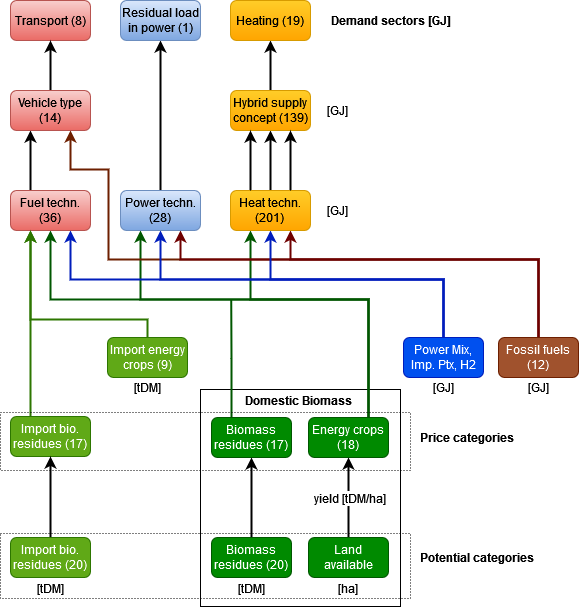SoBio
Scenarios of optimal energetic biomass usage until 2030 and 2050

Coordination:
Team at UFZ:
Project duration:
Short description:
The aim of the project is to:
- Preparation of decision-making bases for the national implementation of RED 2 (time horizon 2030) through a sensible expansion of the project BKSQuote (focus on fuels only) to include the electricity and heating/cooling sectors (incl. sector coupling) as well as other policy instruments: What are the optimal design options for biomass use in the fuels, electricity, heating/cooling sectors under the RED 2 requirements?
- Preparation of long-term scenarios up to 2050: What can we expect from bioenergy in the electricity, heating/cooling and biofuels sectors beyond RED 2 up to 2050? In which sectors and in which technologies will biomass be prioritised in the long term?
- Harmonisation of model input data (e.g. raw material potentials, technical, economic and ecological key figures of the technologies, etc.) and further model conditions or interface formation between the previous modelling approaches in the projects BKSQuote, TATBIO, BioPlanW.
- Contribution to the further development or concretisation of the Smart Bioenergy concept.
In the SoBio project, the UFZ will use modelling to calculate the cost-optimal distribution (allocation) of biomass in Germany's future energy system for the period 2020 to 2050. The first focus of the work is on expanding, adapting and merging the existing model variants of the BenOpt model, which have predominantly modelled individual energy sectors. In contrast to earlier modelling, this project aims to determine the cost-optimal distribution of biomass in competition with alternative renewable technologies and fossil reference technologies in various scenarios across all sectors (electricity, heat, transport). The fusion of the model variants is accompanied by the integration of current data (biomass potentials, technology data and scenarios).
Results:
The results as well as further details on the method and the project in general can be found under the following link:
